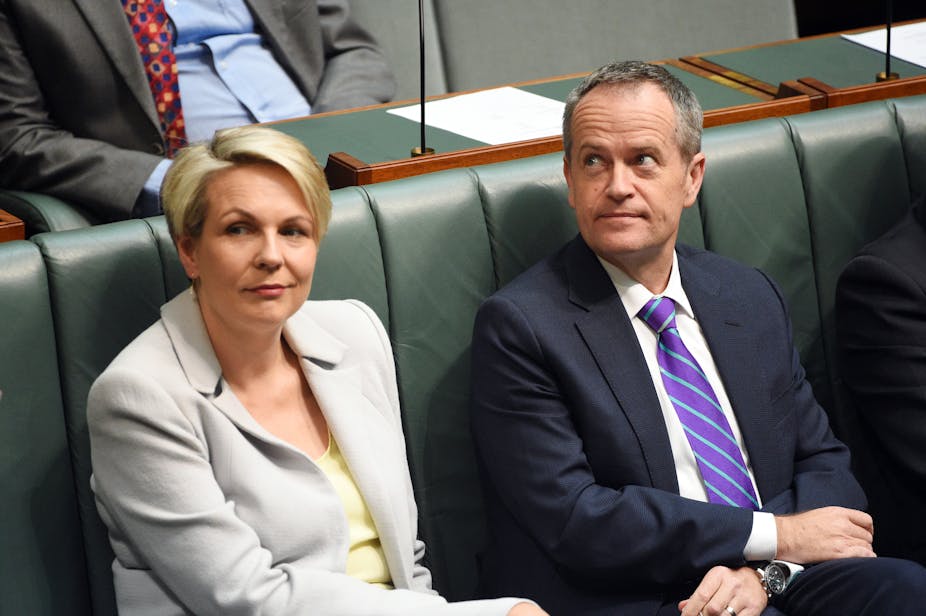In the beginning Malcolm Turnbull didn’t want a plebiscite on same-sex marriage. In the end he seems unlikely to be able to hold the one he promised. In between, the issue is causing him a lot of grief.
As is well known, Turnbull signed up to Tony Abbott’s plebiscite for simple advantage – to clinch some votes for the leadership, and to keep the Nationals happy.
But now the political manoeuvring is dealing the plebiscite a potentially mortal blow while making immediate trouble for Turnbull.
The Liberal conservatives a year ago embraced a plebiscite as their best way of delaying or stopping marriage reform. In the twists and turns however, their ally has actually become the pro-reform Bill Shorten, who has all but declared Labor will prevent the popular vote. This would put off change.
If there can be no plebiscite, reform almost certainly couldn’t happen this term. Turnbull, whose authority is already trashed, could not move to have the matter decided by a parliamentary vote. He’d be torn to pieces by his party enemies.
An indefinite delay would be a win for the Liberal conservatives. It would also be a victory for Shorten, who wants ownership of the marriage reform. What an unholy alliance.
Those in the LGBT community who are campaigning against having a plebiscite would achieve their aim. Their opposition provides cover for Shorten against critics who say he should facilitate a popular vote.
Even Turnbull in the end would be a winner, because he wouldn’t have the a distraction of the plebiscite next year.
The losers? Those same-sex couples who want to get married any time soon.
This row over how to extend a social right to people who don’t currently have it has given Shorten one of his several platforms to continue his assault on Turnbull following the election.
Labor maintains parliament should deal with the marriage law and on Monday Shorten introduced his private member’s bill. Though he was once willing to contemplate a plebiscite, Shorten told parliament a popular vote, “a straw poll,” would be harmful as well as wasteful.
“Putting the question of marriage equality to a national vote, risks providing a platform for prejudice and a megaphone for hate-speech,” he said.
“The idea of young people, perhaps yet to come out, seeing the legitimacy of their identity debated on the national stage – that is not an ordeal we should inflict on any citizen when we have a better path. Let me be as blunt as possible. A ‘No’ campaign would be emotional torment for gay teenagers. And if one child commits suicide over the plebiscite – then that is one too many.”
While Labor has not given a final statement on how it will vote on the legislation to set up a plebiscite, it would surely be impossible for Shorten to row back from this strong stand. The Greens have already declared their opposition (apart from Sarah Hanson-Young who has kept her options open), as has the Nick Xenophon Team and Derryn Hinch. If all that holds, the plebiscite legislation would be voted down.
But not before doing more damage within the Liberals, who are split over whether there should be public funding of the yes and no cases. The conservatives – fearing the yes side would be able to raise more money - insist there should be.
Attorney-General George Brandis has been against public funding. So is Warren Entsch, the backbencher who pushed marriage reform in the last parliament. But like the Liberal conservatives, the Nationals favour it.
Cabinet discussed the funding question on Monday night, when it considered the plebiscite’s question and timing.
The ABC reported that cabinet had agreed to $7.5 million for each side, with a $1,500 cap on tax deductibility of donations - the cap designed to prevent people on the no side exploiting the unlimited deductibility available for donations to churches. The date being canvassed was February 11.
The Coalition party room will have its say on Tuesday morning.
It is hard to see a case for public funding – although easy to understand that Turnbull might regard it as a course of least resistance. The parliamentary opposition to giving the go-ahead for a plebiscite is likely to be strengthened by granting public funding.
Turnbull must wish he could just jump to the end game – the Senate’s vote on the legislation – without having to make this painful trek to a probable dead end.
Postscript
Tuesday’s Newspoll has the government and Labor still on 50-50 two-party vote and Turnbull at a new low in net satisfaction of minus 19 (one point worse than a fortnight ago).

